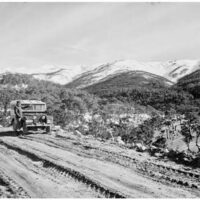The Thredbo conference is an international forum on passenger transport competition and ownership issues. It is held every two years. Professor David Hensher co-founded the conference with the first held in 1989, in Thredbo.
But since then it has been held in locations around the world. It has some very rigorous papers, reporting on recent research and experience but ultimately it pushes towards real, practical solutions.
The next conference will be held in Singapore in August this year 2019.
The chairperson of one of the workshops titled “Beyond the fare box: sustainable funding of public transport by better understanding service values” is Professor Roger Vickerman. He’s the emeritus professor of European economics at the University of Kent. I interviewed him recently from his Home in the UK.
DB: Privatising services, does that cover most of your desired outcomes?.
RV: I think we’ve seen very clearly over the years in many different countries that simply handing over the provision of important public services, which is what local public transport is, simply to private provider with the profit motive doesn’t actually work. And it doesn’t work particularly for those who are more disadvantaged in society, who are the ones who typically need to rely on public services.
“And of course one of the problems that comes with privatization has been that in order to be able to privatize a range of services, you have to break them up into as it were bite sized chunks to enable the private sector to get a hold of whether this is a back breaking up the monopoly providers of local bus services or whether it’s a bag separately privatizing a whole range of different services means that you don’t get that joined up thinking that we had typically in public service areas thought of as being important.
“That there is this interrelationship between services that breaking them up doesn’t necessarily provide a coherent and integrated solution. And that has been a problem. I mean certainly if you look for example at those countries which followed this privatization mantra, going back to Margaret Thatcher in the U.K. for example, saying that the private sector could provide things more efficiently.
But that means that we’re planning what should be networks are in terms of tiny little bits that don’t necessarily all fit together.
DB: How have other policy decisions worked against the transport disadvantaged?
RV: At the same time as we’ve seen a removal of that backbone of public services from outer areas: closure of rural post offices; closure of local banks; so that people actually need to get into a town and then find that they don’t have access to public transport to enable them to get there and back easily. Even though we might have us as a system that subsidizes public transport, for example for elderly people, through free bus passes not much point having a free bus pass if there isn’t a bus to use it.
DB: One strategy for raising funds other than through the fare box is based on land value. If businesses benefit from an improved transport network, then should they contribute to its construction? In Australia we call that value capture. Can this work?
RV: We’ve seen an example with the development of the Crossrail project within Greater London which is not going terribly well at the at the end game. But we saw there the fact that they were using an additional charge on business rates for those areas that would benefit from this in order to be able to fund the scheme and indeed identify certain locations where there was a demand for a station on the line, which the overall project did not think was viable, to enable the private sector to do the development. You make the basic provision for a station within the system but the actual development of the infrastructure of the station itself is then funded by a local developer on the basis of capturing the value that comes from developing the land above the station as it were.
DB: That is a case of getting money to build it in the first place or to operate it. If you go back to the late eighteen hundreds in England and the development of railway lines, there was a boom in railway construction based on land speculation and then many railways went broke because of ongoing operating costs. Are we talking about here ongoing funding or just getting over the first construction hurdle?
RV: Well I think the first bit is actually making that that initial provision. Moving on from there to an ongoing support is of course much more difficult stage to get through with that. And that’s where you might or might feel that some form of land value taxation that enables the local public authority to be able to provide that ongoing funding might be a good idea.
But you are indeed right that most of those early speculators in the railways went bankrupt, which is probably true of most private transport investments. Good idea to enthuse the private sector to build things which then can’t be taken away. And if they go bankrupt as a result of that, that seems to be hard luck and you can certainly see examples of that in terms of the private building of highways across Europe where private sector developers have essentially gone bankrupt as a result of having developed it and the state has had to step in.
DB: You talked about monolithic structures or systems. In a previous Thredbo conference, they talked about operators that get revenue from businesses as value capture, but there was a concern that the focus may not be on maintaining the infrastructure or improving the service delivery but rather just boosting non-fare revenues. There was a suggestion of segregating roles between the operator of, say, the rail system and the operator of the non-fare component. Is that part of the need to have a broader view and therefore a broader management structure?
RV: That’s an interesting point. I mean we know for example that if you look at Japan which has been one of the more successful privatizations of rail systems across the world the majority of the Japanese rail companies do not own most of their revenue from the fare paying passenger. They earn it from the ancillary services provided in stations we know which are great sort of Emporia. When you get when you go into them it’s because they get the money from rents and source much in the same way as airports gain a huge amount of funding from the franchises that they let within the airport terminal as opposed to the money that they gain from the allocation of slots to airlines.
Other issues he discusses include:
- The legacy of John Maynard Keynes






